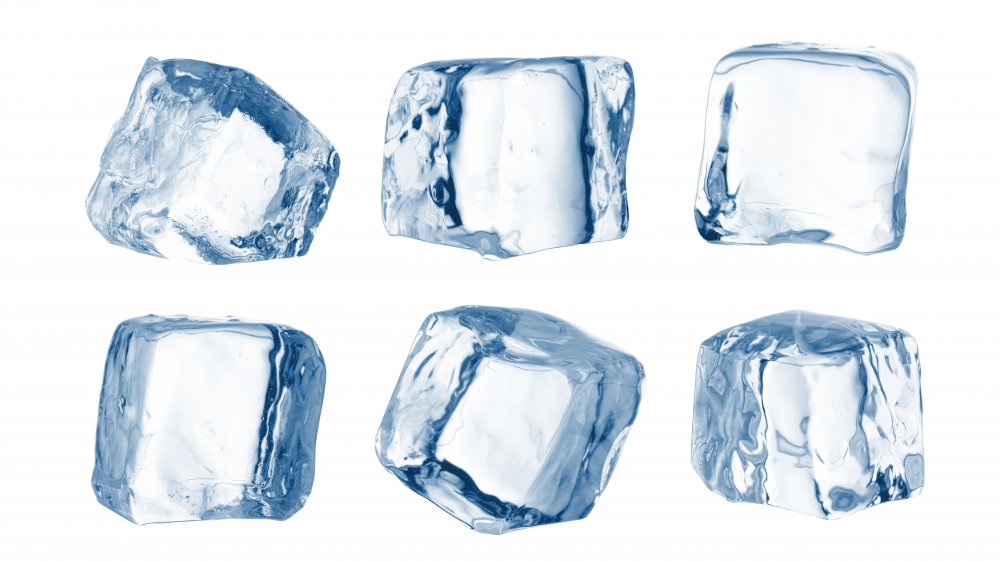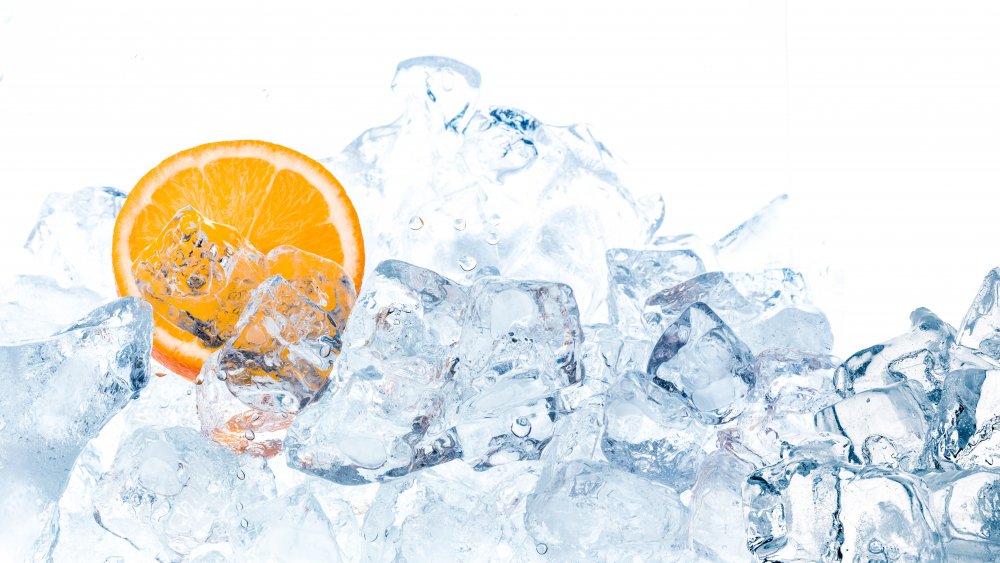Why Chewing Ice Could Be Ruining Your Teeth
Adding ice to a drink is a common way to cool down, but think twice before you start crunching on those cubes. This habit can have some negative impacts on teeth — and can even leave lasting damage.
Teeth are made up of four components: pulp at the center composed of tissue, nerves, and blood vessels; plus dentin, enamel, and cementum, which attaches the tooth to the jawbone (via KidsHealth). Enamel is the substance that is responsible for protecting the tooth from decay and injury. It is the body's hardest tissue, but it doesn't regenerate. In other words, once it's damaged or worn away, it's gone, and the tooth is susceptible to bacteria, plaque, and decay.
Ice is also incredibly hard, and when these two strong substances meet, one of them is going to give way (via American Dental Association). Hopefully, it's the ice that crushes, but too often it's the tooth, leaving behind tiny cracks in the enamel that weaken the protective structure.
Even if the enamel isn't cracked, it can be scraped and chipped over time and eventually compromised enough to put the tooth at risk. Additionally, chewing ice is hard on things like fillings, crowns, and braces, and can cause permanent damage, which requires repair.
Why do we crave ice to begin with?
Many people just enjoy the feeling of crunching something between their teeth or even sucking on ice to cool down. But sometimes there are underlying medical conditions that lead to the urge.
Iron deficiency anemia can lead to a craving for ice, though researchers are still unclear about why. A person with anemia lacks adequate levels of iron, which is partially responsible for creating the red blood cells that transport oxygen around the body (via Medical News Today).
Pagophagia is the clinical term for the compulsive need to chew ice. It is a subset of a condition called pica, which causes compulsions to eat items that are not food, like dirt, hair, or chalk. It's a common condition for children and during pregnancy. A doctor should be consulted if the cravings last a month or longer, according to Healthline.
If you're going to chew ice, at least seek out crushed ice, which is slightly softer than the cubed version. But dentists recommend breaking the habit altogether for the best overall tooth hygiene.


